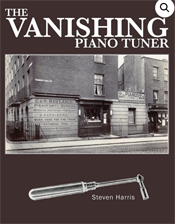Association of Blind Piano Tuners
Professional, Qualified Piano Tuner-Technicians, Tuning and Repairing Pianos .
Find a Mr R Foster MABPT Dip AEWVH Reviews

UK Piano Page

